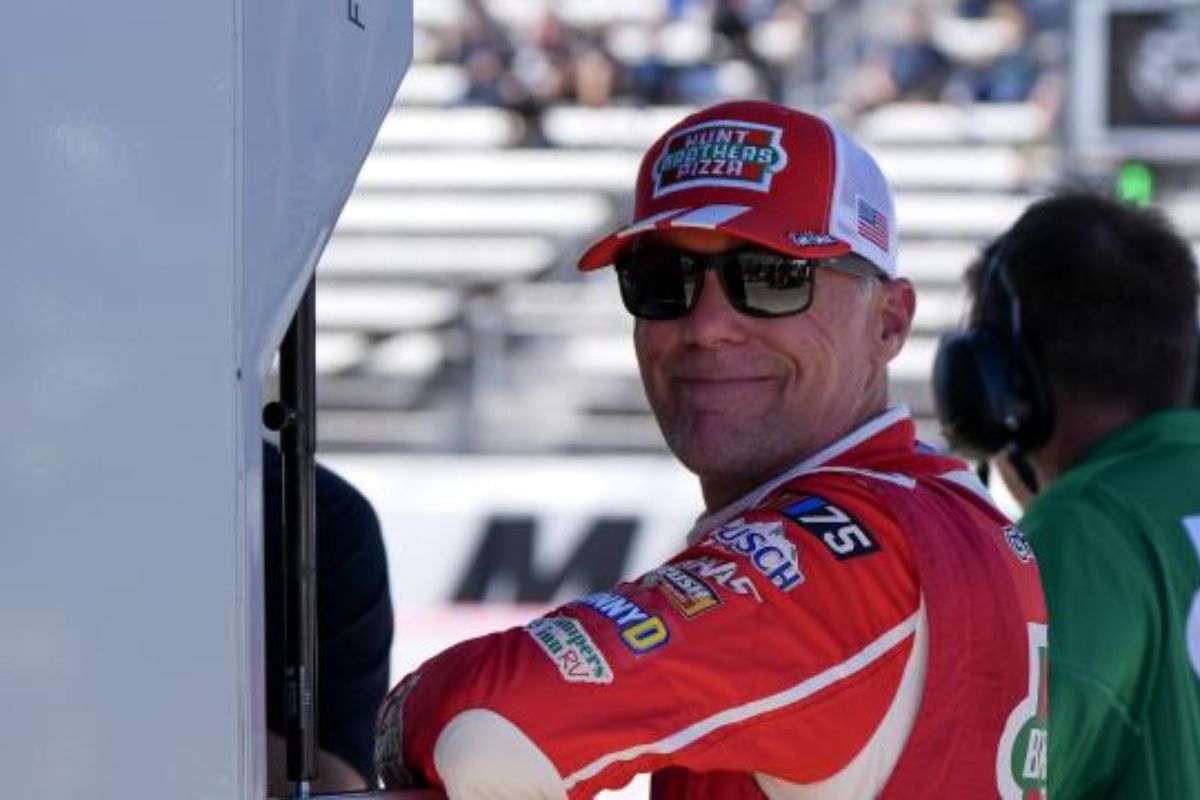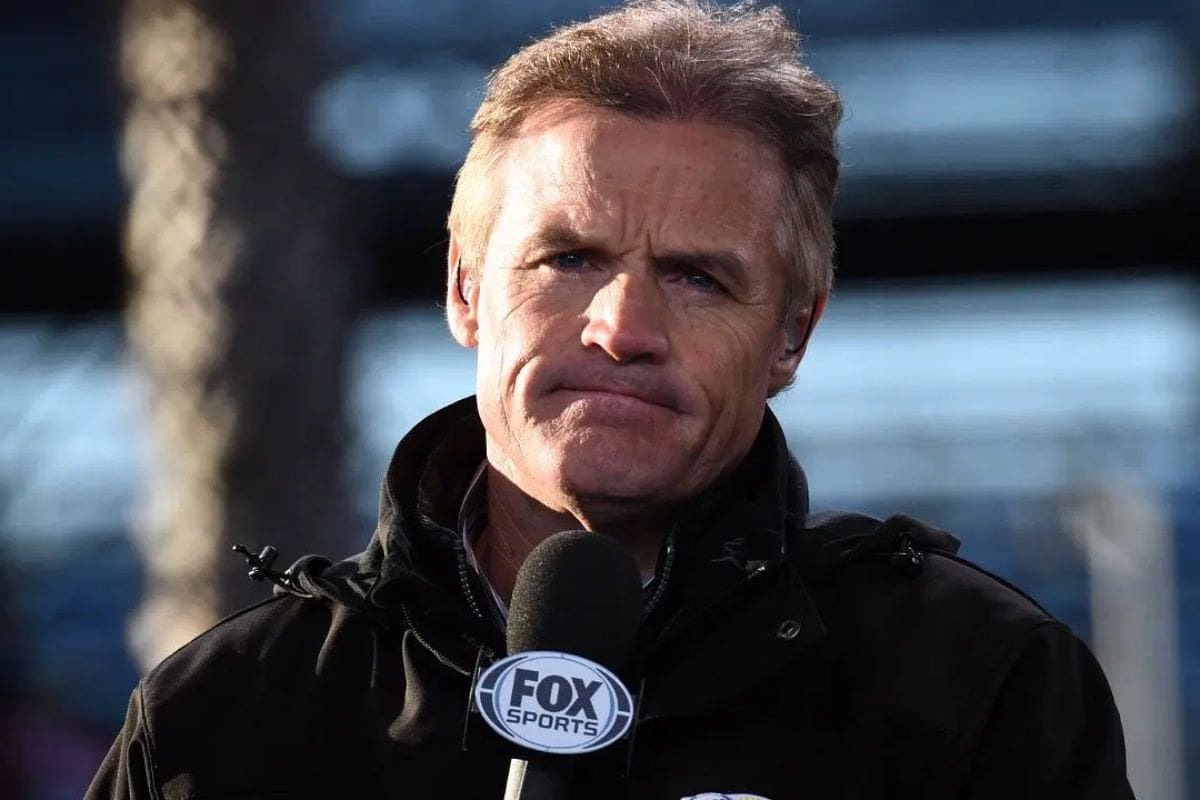Kevin Harvick Slams Austin Dillon: In the wake of Austin Dillon‘s victory, Kevin Harvick‘s pointed critique raises crucial questions about the future integrity of NASCAR. Harvick argues that the aggressive driving tactics seen in recent races could hamper the ethical foundation of the sport, particularly for the next generation of drivers. His call for improved regulations and clearer officiating suggests a critical moment for NASCAR, one that could redefine its standards moving forward. As the debate unfolds, the implications of Harvick’s stance on the sport’s governance and its long-term viability warrant closer examination. What might this mean for NASCAR’s direction?
Key Highlights
- Kevin Harvick criticized Austin Dillon’s aggressive tactics, arguing they undermine the integrity of NASCAR and set a poor example for future drivers.
- Harvick called for stricter regulations from NASCAR to promote accountability and discourage reckless driving behaviors among competitors.
- The incident involving Dillon raises concerns about the normalization of aggressive racing, potentially leading to a culture of recklessness among younger drivers.
- Emphasizing the importance of fair competition, Harvick highlighted that integrity is vital for the sport’s reputation and long-term sustainability.
- Harvick’s remarks reflect a broader call within the racing community for clearer officiating and consistent rule enforcement to protect NASCAR’s future.
Austin Dillon’s Controversial Victory
Austin Dillon’s controversial victory has ignited a debate within the NASCAR community, drawing attention to the implications of aggressive racing tactics. The decisive moments of the race saw Dillon executing maneuvers that many would categorize as reckless, specifically when he collided with race leader Joey Logano, causing him to spin out on the final turn. Dillon’s subsequent wreck of Denny Hamlin only intensified the scrutiny surrounding his win and raised crucial questions about the ethics of competitive behavior in the sport.
The crux of the issue lies in the perceived normalization of aggressive driving as a viable strategy for victory. While NASCAR has long celebrated the competitive spirit, the boundaries of acceptable conduct appear increasingly blurred. Fans and critics similarly have begun to question whether such tactics should be condoned or whether they undermine the integrity of racing. Dillon’s actions, though effective in securing a win, might set a troubling precedent for future races, where aggression supersedes skill and strategy.
NASCAR officials’ decision to rule Dillon the winner has further fueled the debate, prompting discussions about potential reforms to guarantee a balance between thrilling competition and responsible driving. The reactions from fellow drivers and commentators will likely shape the narrative moving forward, as the community grapples with the implications of this controversial victory.

Kevin Harvick’s Reaction
The recent controversy surrounding Austin Dillon’s win has prompted a significant reaction from veteran driver Kevin Harvick, emphasizing the broader implications of aggressive racing tactics in NASCAR. Harvick, a respected figure in the sport, expressed his dismay not only at the incident itself but also at the message it sends to the next generation of drivers, including his son, Kelen.
In an open moment shared on NASCAR’s FOX YouTube channel, Harvick recounted receiving a call from Kelen just moments after the race concluded. His son sought guidance, asking, “Dad, is that okay for me to do? What would you tell me?” This exchange highlights the ethical dilemmas that arise when racing rules appear ambiguous or inconsistently enforced.
“But here’s the hard part: 15 seconds after this race ended and the cars crossed the start-finish line, my phone’s ringing, and the first question from Kelen was, ‘Dad, is that okay for me to do? What would you tell me?’” – Harvick
Harvick’s frustration is palpable as he grapples with the notion that aggressive, potentially reckless actions can be rewarded, setting a concerning precedent for young drivers. The incident at Richmond Raceway serves as a catalyst for a broader discussion about the standards upheld within NASCAR.
“Now, what we have to decide as an industry is what’s right and what’s wrong. How do we officiate it? Who’s going to officiate it? Because I don’t think that’s exactly how everybody wants to race, but it’s the position you’re in this type of scenario with the points and the playoff system and the things that we do, knowing that there are no consequences. There are no consequences for what just happened.” – Harvick
Harvick’s reaction is not merely personal; it reflects a vital turning point in the sport’s narrative. As a role model, he understands the weight of his influence, emphasizing the importance of integrity and sportsmanship in racing. His impassioned plea for accountability speaks to a need for clear guidelines that prioritize safety and fair competition, thereby safeguarding the future of NASCAR.
NASCAR’s Need for Clear Officiating
In view of Kevin Harvick’s reflections on racing ethics, the need for clear and consistent officiating within NASCAR has never been more pressing. Harvick’s call for an industry-wide consensus on what constitutes appropriate racing behavior highlights a fundamental challenge: the ambiguity of current officiating practices. With the competitive landscape evolving, the absence of defined consequences for infractions threatens the integrity of the sport.
“So, we just have to decide as an industry what we want and what the professional level is. Are we leading the racing industry to teach them the correct things from top to bottom? Because the way that we would teach this from the bottom is not what just happened, and I just don’t know that that’s right.” – Harvick

Impact on Younger Drivers
Many within the NASCAR community are increasingly concerned about the influence of current racing behaviors on younger drivers. Kevin Harvick’s recent comments highlight a vital issue: the potential for emerging talents to misinterpret aggressive driving tactics as acceptable norms.
If NASCAR fails to address these behaviors, the future of the sport could be at risk. Harvick’s apprehension, heightened by his son’s perspective, reflects a broader anxiety shared by many veterans in the sport.
The impact of these behaviors on younger drivers can be summarized in three key areas:
- Role Models: Young drivers often look up to established racers, and if they see aggressive moves celebrated instead of penalized, it may encourage them to adopt similar risky tactics.
- Long-Term Consequences: A culture of reckless driving can lead to accidents and injuries, which not only jeopardizes the health of drivers but also tarnishes the sport’s reputation, potentially deterring new fans and sponsors.
- Skill Development: Emphasizing aggressive tactics over tactical racing can stunt the growth of fundamental skills in younger drivers, such as patience, racecraft, and strategic thinking, which are vital for long-term success.
Without intervention, the lessons learned by today’s youth may lead to a generation of drivers who prioritize aggression over artistry, ultimately reshaping the landscape of NASCAR racing.
Kenny Wallace’s Perspective
Kenny Wallace’s outspoken criticism of the Cookout 400 incident highlights a growing divide within the NASCAR community regarding race ethics and decision-making. As a seasoned figure in the sport, Wallace has consistently voiced his opinions openly, and his stance on Austin Dillon’s controversial victory is no exception. He asserts that Dillon’s strategy—causing a double wreck to secure a win—has raised considerable ethical questions about what is acceptable within the sport.
Wallace argues that NASCAR’s decision to award Dillon the win, despite the dubious circumstances, signals a troubling precedent. He believes that while Dillon executed his plan to qualify for the playoffs, the implications of such tactics warrant scrutiny. The concern is not merely about one race but about the broader ramifications for competitive integrity within NASCAR.
He contends that if NASCAR were to penalize Dillon now, it would undermine their initial ruling, revealing the complexities of governance in high-stakes racing. The fallout from this incident raises critical questions: Will NASCAR allow such behavior to go unchecked in the future? How will this influence emerging drivers who look to established figures for guidance?
Wallace’s perspective serves as a call for the NASCAR leadership to reflect on its values. The integrity of racing is at stake, and as the community grapples with these ethical dilemmas, the decisions made today will certainly shape the future of the sport. Wallace’s insights remind us that the essence of racing transcends mere victories; it is about upholding the spirit of fair competition.

News in Brief: Kevin Harvick Slams Austin Dillon
In view of the recent controversy surrounding Austin Dillon’s victory, the imperative for NASCAR to implement stringent regulations becomes increasingly clear. The normalization of aggressive driving tactics poses considerable risks not only to the integrity of the sport but also to the development of aspiring drivers. By prioritizing accountability and ethical standards, NASCAR can cultivate a competitive environment that fosters trust among fans and guarantees the sustainability of racing for future generations.
ALSO READ: Kevin Harvick Eyes New Sport After NASCAR Success, Following Michael Jordan and Denny Hamlin
